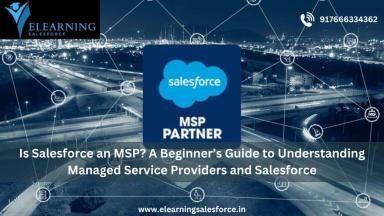Salesforce is now the foundation of customer relationship management (CRM) for businesses all around the world. Salesforce Role helps businesses increase productivity, enhance customer happiness, and streamline procedures with its robust cloud-based capabilities. However, it can be challenging for newcomers to decide which career path to take because the Salesforce ecosystem offers so many distinct positions and career trajectories.
We’ll go over the fundamentals of Salesforce roles in this blog, point out important industry trends, and provide helpful advice to help you start along the path to a fulfilling career in Salesforce. We can help you achieve your goals, whether they are technical or business-oriented!
Understanding the Core Salesforce Roles
Salesforce offers a wide range of roles, each catering to different skill sets and career interests. Let’s break down a few key positions to help you understand what each one involves:
1. Salesforce Administrator (Admin)
One of the most prevalent entry-level roles in the Salesforce ecosystem is that of the Salesforce Administrator. Salesforce platform configuration and upkeep fall under the purview of administrators. They take care of things like managing users, creating reports, importing data, and tailoring Salesforce to the needs of the company.
Proficiency in Salesforce tools, user authorization, data management, reporting, and problem-solving are essential.
Real-World Example: To make sure that Salesforce systems are customized and functioning properly, businesses like Amazon and Coca-Cola depend on Salesforce administrators.
Why It’s Excellent for Novices: Becoming an administrator is a great way to get started with Salesforce. You’ll discover how companies utilize Salesforce on a regular basis and gain practical experience with its products.
2. Salesforce Developer

Salesforce developers assume a more technical role, utilizing Apex, Visualforce, and Lightning components to create unique applications and solutions on the Salesforce platform. This position might be ideal for you if you enjoy coding and want to work with Salesforce’s technical side.
Proficiency in coding languages, particularly JavaScript and Apex, knowledge of Salesforce architecture, and the capacity to modify apps are required.
Real-World Example: To guarantee that their Salesforce instance is customized to meet their unique requirements, Salesforce developers assist in the creation of custom apps for businesses such as T-Mobile.
Why It’s Excellent for Novices: Starting as a Salesforce Developer can be a demanding and fulfilling profession if you have experience with coding or like solving problems.
3. Salesforce Consultant
Salesforce consultants collaborate directly with companies to comprehend their requirements and suggest solutions that best meet their objectives. By frequently working on implementation projects, coaching teams, and providing strategic guidance, they assist businesses in making the most of Salesforce.
Strong communication abilities, knowledge of business procedures, and the capacity to assess customer demands and convert them into Salesforce solutions are required.
Real-World Example: To enhance their sales pipeline management, a retail customer may seek assistance from an Accenture Salesforce Consultant in customizing Salesforce Sales Cloud.
Why It’s Excellent for Novices: Consulting is a fantastic approach to develop both technical and people skills for people who like collaborating with customers and resolving business issues.
4. Salesforce Architect
Experts that plan and manage the architecture of Salesforce apps are known as Salesforce Architects. To ensure sure everything operates effectively and safely, they make high-level decisions regarding system architecture, integrations, and security.
Advanced Salesforce knowledge, system design proficiency, and a thorough comprehension of data modeling and integration are required.
Real-World Example: Salesforce architects assist major corporations like as Verizon and BMW in guaranteeing the scalability, security, and effectiveness of their intricate, enterprise-level Salesforce solutions.
Why It’s Excellent for Novices: Even though this position is sophisticated, being a great architect will require first getting expertise as an administrator or developer..
5. Salesforce Business Analyst
A Salesforce Business Analyst serves as a liaison between business and technical teams. They assist companies make the most of their Salesforce systems by collecting needs, analyzing data, and offering insights.
Analytical thinking, effective communication, the capacity to convert business needs into technical specifications, and familiarity with Salesforce capabilities are all necessary.
Real-World Example: To enhance service delivery, a Salesforce Business Analyst at a hospital organization may assist in implementing patient data management capabilities within Salesforce.
Why It’s Excellent for Novices: This position offers a fantastic combination of technical and business problem-solving skills whether you have a background in business or enjoy working with data.
Market Trends: What’s Hot in Salesforce Careers?
The Salesforce ecosystem is expanding, and there is a growing need for qualified workers. Recent projections predict that the worldwide Salesforce industry will expand rapidly, generating thousands of job openings for professionals in administrative, development, architectural, and consulting roles.
Key Trends to Watch:
- Automation and AI: Professionals with knowledge of automation and AI will be in great demand as Salesforce continues to integrate AI solutions like Einstein.
- Remote Opportunities: Many Salesforce positions provide the freedom to work from any location as companies continue to embrace remote work.
- Specialization: You can differentiate yourself by focusing on a particular Salesforce cloud (such as Sales Cloud or Service Cloud) or developing proficiency in specialized fields like Salesforce Marketing Cloud.
Tips for Beginners: How to Start Your Salesforce Journey
- Enroll in Online Courses: Sites such as Udemy and Trailhead, Salesforce’s own learning platform, provide introductory courses covering everything from the fundamentals of Salesforce to advanced certifications.
- Become Certified: In the employment market, Salesforce credentials are highly regarded. Work your way up from the Salesforce Administrator certification.
- Join Salesforce Communities: Participate in user groups, forums, and events like as Dreamforce to interact with the Salesforce community. Making professional connections can speed up your learning and help you land a job.
- Emphasis on Real-World Experience: Use your abilities on practical tasks, even if it’s only lending a hand with Salesforce setup for a nonprofit. Practical experience is essential.
Ready to Take the First Step?
Numerous positions are available in the Salesforce ecosystem to accommodate a range of skill levels and professional goals. There is a career path with Salesforce for everyone, regardless of whether they are just starting out or want to progress.
Do you want to learn more about Salesforce? Take your Salesforce abilities to the next level by exploring our advanced learning tools and gaining access to special tutorials, certification guides, and more!
Always keep in mind that every journey begins with a single step. You will soon be a part of the flourishing Salesforce ecosystem if you choose your path and remain dedicated.
you may be interested in this blog
A Guide to 50+ Salesforce Einstein AI Tools




